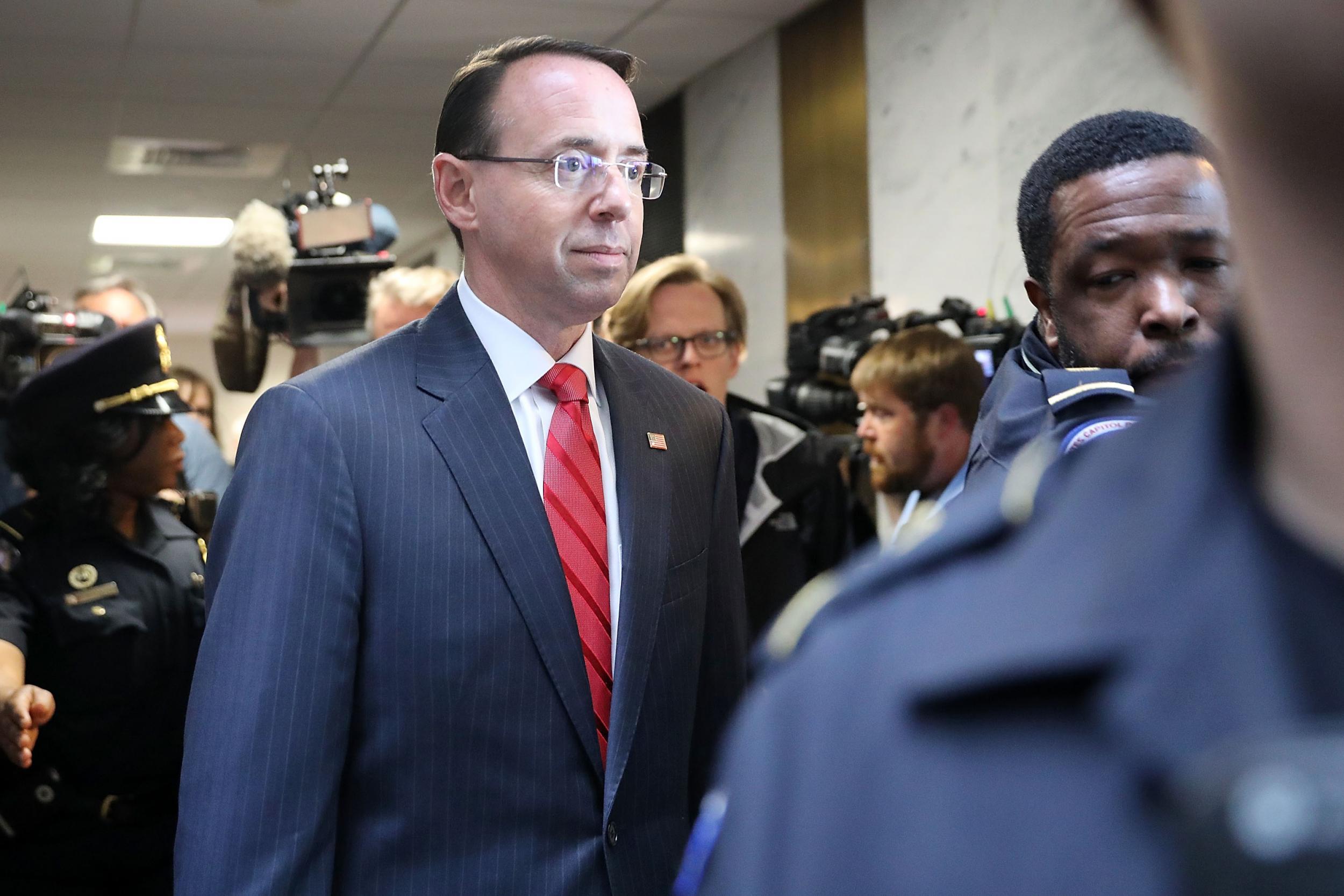Deputy Attorney General says he talked about firing Comey months before Trump did so
His memo was not the reason Trump fired Comey, though, Rosenstein says

Deputy Attorney General Rod Rosenstein has confirmed that there were talks between himself and Attorney General Jeff Sessions about shaking up the FBI leadership months before President Donald Trump indicated he had decided to fire James Comey.
Mr Rosenstein, in separate addresses to the House and Senate this week, said that, in spite of a personal admiration he felt for Mr Comey, he believed the then-FBI director had breached protocol and politicised an investigation into former Secretary of State Hillary Clinton’s use of a private email server while in government. He also noted that a memo that was widely reported to be the basis for Mr Trump’s firing decision was written a day after the President had made up his mind to sack Mr Comey.
“My memorandum is not a statement of reasons to justify a for-cause termination. My memorandum is not a survey of FBI morale or performance. My memorandum is not a press release,” Mr Rosenstein said according to a readout of his statements. “It is a candid internal memorandum about the FBI Director's public statements concerning a high-profile criminal investigation.”
The particulars surrounding Mr Comey’s firing became rather confusing quickly after it was announced. As questions about whether or not the firing might constitute obstruction of justice swirled between White House staff pointed to the Rosenstein memo as their justification, which the deputy attorney general later disputed.
Mr Trump himself later said that he had already made the decision to fire Mr Comey when the Rosenstein memo arrived.
Mr Rosenstein noting the talks to get rid of Mr Comey had lasted for months is unlikely to quell concerns about obstruction of justice, however. Just a week after the firing, memos written by Mr Comey detailing conversations he had had with the President indicated that Mr Trump had asked his former FBI director to stop an investigation into former National Security Adviser Michael Flynn’s ties to Russia, and had asked if he was personally being investigated.
Join our commenting forum
Join thought-provoking conversations, follow other Independent readers and see their replies
Comments
Bookmark popover
Removed from bookmarks